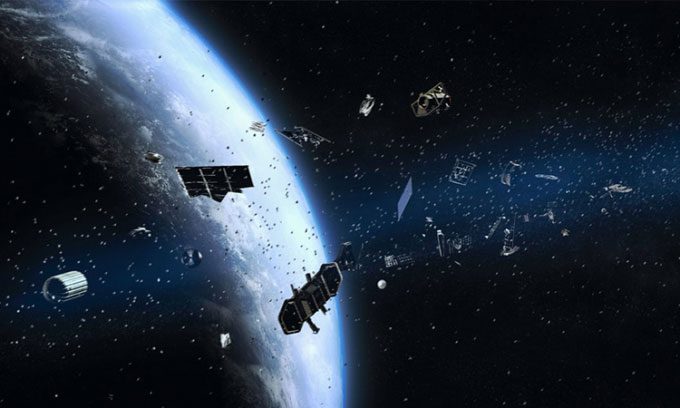To ensure the safety of space missions, China is researching the use of artificial intelligence (AI) for automatic monitoring of space debris.
Led by scientists at the Xi’an Satellite Control Center, this project is among more than a dozen initiatives approved by the Ministry of Science and Technology of China this year, as part of an annual funding of 500 million yuan (74 million USD) to secure China’s leading role in AI technology.
“We will leverage our decades of expertise in preventing space collision incidents and mitigating space debris, while gathering experts from across the country to meet China’s strategic needs. More specifically, we will test AI models related to monitoring debris of various sizes, changes in the space debris environment, and situational awareness,” said Jiang Yu, the principal investigator of the project, in an interview with PLA Daily.
This project is also supported by the European Space Agency (ESA), which began training AI to avoid orbital debris several years ago. ESA has created a large dataset of historical collision alerts and is calling on the global AI community to help develop a system that will ultimately assist spacecraft in autonomously avoiding space debris.

The increasing amount of space debris poses a threat to space missions. (Photo: UM)
Hundreds of millions of debris pieces are believed to be orbiting Earth as a consequence of 70 years of international space exploration. Many of these fragments are parts of old satellites or discarded rockets, with over 36,000 pieces measuring more than 10 cm in diameter.
As both space debris and spacecraft move at extremely high speeds, any collision—even with small fragments—can cause severe damage to spacecraft and potentially create even more debris.
Space congestion is expected to worsen, with the ongoing construction of large networks of thousands of satellites in low Earth orbit. For example, the California-based company SpaceX is launching more satellites in a single month than the total number of satellites globally launched in previous years.
In a 2021 article, researchers from the National Defense Technology University of China stated that the space environment is becoming too complex, dynamic, and uncertain to manage using traditional methods based on human judgment. They believe that employing AI technology could enhance the speed and quality of information collection, processing, and dissemination while providing critical support for a safe space environment.
China is also utilizing AI to develop smart satellite networks for scientific research. For instance, astronomers at the Chinese Academy of Sciences are developing a cluster of at least 100 microsatellites to revolutionize human understanding of the most intense explosions in the universe.





















































